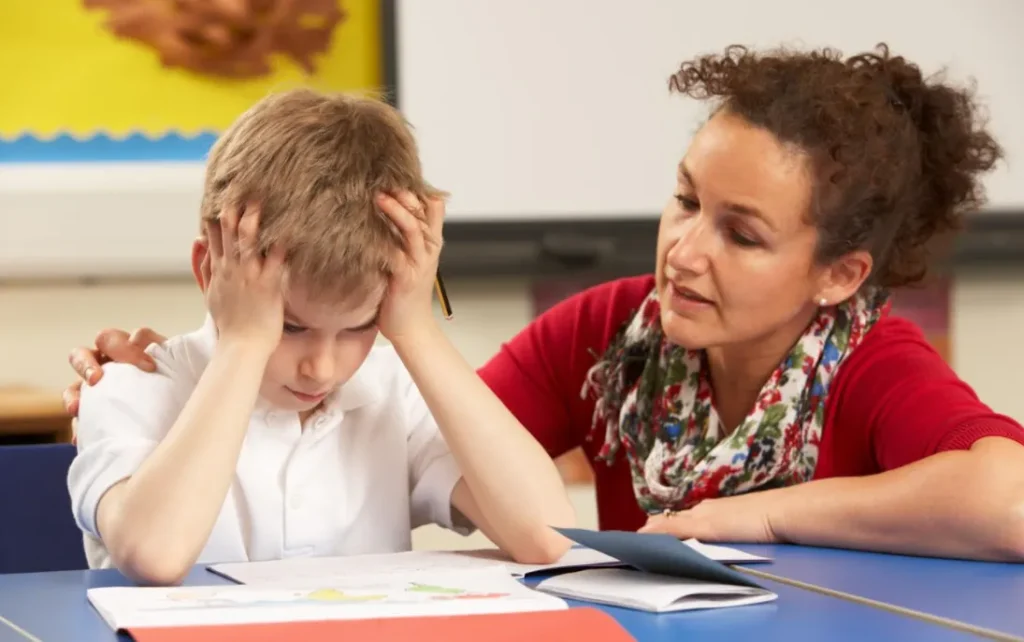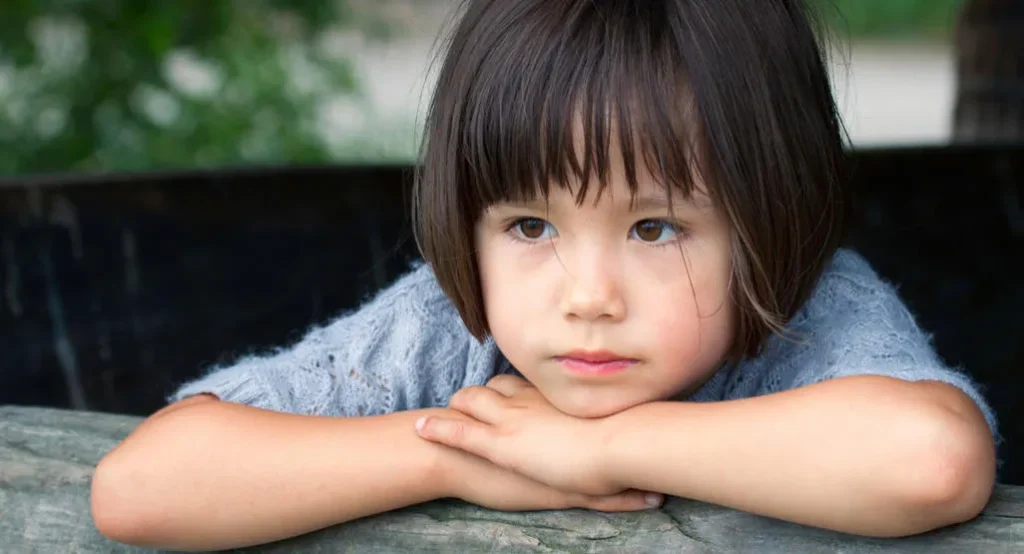Have you been noticing some behavior from a child that tells you he or she is unhappy? Do you want to know the potential signs of an unhappy child? If yes, keep reading to know the potential signs of an unhappy child and how to make them happy.

As parents, guardians, or caregivers, it’s paramount to be attuned to the well-being of children.
An unhappy child may not always express their emotions directly, making it essential for adults to recognize subtle signs of distress.
This article explores various indicators that may suggest a child is unhappy and provides insights into offering support.
Signs of Unhappy Child

Here are potential signs of an unhappy child:
1. The Child Becomes More Quiet and Withdrawn
A noticeable shift in a child’s behavior, such as becoming unusually quiet, withdrawn, or exhibiting mood swings, could be indicative of underlying unhappiness.
To address this, pay attention to deviations from their typical conduct.
Engaging in open conversations with the child can provide insights into their emotional state, allowing caregivers to address concerns and provide support.
2. The Child Has Difficulty Concentrating on Academic Performance
Unhappiness can affect a child’s ability to concentrate and engage in activities, leading to a decline in academic performance.
If you observe a sudden drop in grades or a a lack of interest in learning, it’s essential to explore the root cause.
Collaborating with teachers and school staff can help identify challenges and implement strategies to support the child academically.
3. You Notice Significant Changes in Your Child’s Eating Habits
Significant changes in eating habits, whether an increase or decrease in appetite, can signal emotional distress.
Ensure you monitor the child’s relationship with food and address any concerns regarding their nutritional well-being.
Creating a supportive environment during meals and encouraging open communication can contribute to understanding and addressing the child’s emotional needs.
4. The Child May Experience Difficulties in Falling Asleep
An unhappy child may experience difficulties in falling asleep, frequent nightmares, or disruptions in their sleep patterns.
These sleep disturbances can impact their overall mood and daytime functioning.
Establishing a consistent bedtime routine, creating a calming sleep environment, and addressing any fears or anxieties can contribute to improving the child’s sleep quality.
5. You Notice the Child’s Social Isolation or Difficulty Making Friends
Sometimes, unhappiness may manifest in social interactions. If children consistently isolate themselves, struggle to make friends, or experience challenges in maintaining relationships, it’s crucial to explore potential emotional factors.
Encouraging social activities and providing opportunities for positive social experiences can contribute to the child’s social well-being.
6. The Child May Express Negative Emotions
Children may convey their unhappiness through expressions of negative emotions such as sadness, anger, or frustration.
Pay attention to their verbal and non-verbal cues to understand the underlying emotions.
Teaching children healthy ways to express and manage their emotions can empower them to navigate challenges effectively.
7. You Notice Regression in the Child’s Development
Unhappiness might lead to a regression in developmental milestones. Keep an eye out for signs of regression, such as bedwetting, thumb-sucking, or other behaviors that were previously outgrown.
Providing reassurance, understanding, and a safe space for the child to express their feelings can aid in addressing emotional challenges.
8. You Notice Physical Ailments with No Apparent Cause
Sometimes, unhappiness can manifest as physical complaints, such as headaches or stomach aches, even when there’s no apparent medical cause.
Consider emotional well-being as a factor in addressing these ailments.
Seeking guidance from healthcare professionals and exploring therapeutic interventions can contribute to a holistic approach to the child’s health.
9. The Child May Express Feelings of Loneliness or Rejection
An unhappy child may explicitly express feelings of loneliness, rejection, or a sense of not fitting in.
Take these statements seriously and explore the reasons behind their perceptions.
Furthermore, encouraging positive social interactions, fostering a sense of belonging, and addressing any underlying issues can contribute to improving the child’s emotional well-being.
10. You Notice the Child’s Sudden Loss of Interest in Hobbies or Activities
A child’s sudden disinterest in activities they once enjoyed can be a sign of unhappiness. Investigate the reasons behind their waning enthusiasm and work together to reintegrate joy into their lives.
Identifying new interests, providing opportunities for exploration, and fostering a positive environment can contribute to the child’s overall happiness.
In conclusion, recognizing the signs of an unhappy child is the first step in providing the necessary support and intervention.
By fostering open communication and being attentive to their emotional well-being, caregivers can contribute to the child’s overall happiness and mental health.
Addressing these signs promptly and collaboratively can lead to positive changes and a more nurturing environment for the child.
Related Searches:
